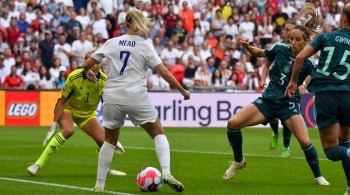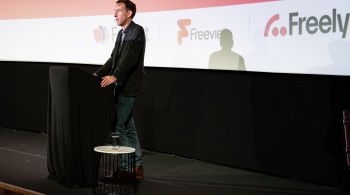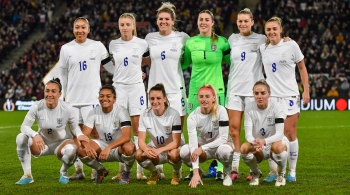Why a nation of TV lovers will always want the joy of the shared experience

Few sectors of industry are as exposed to the disruptions of this extraordinary age as television and lockdown has added another layer of dizzying change.
Television sits at the intersection of technology and public interest, of nostalgia and progress, of cultural sovereignty and globalisation, of freedom-of-speech and the rule of law, of factual and “alternative-factual” information, of neutrality and partiality.
This busy crossroads is currently policed by Ofcom. Every five years, it’s required by law to conduct a rigorous inspection of public service broadcasting (PSB) to see what needs fixing. That process has been going on as the country makes huge collective strides to get out of lockdown as well as adjusting to Brexit and the juggernauts of US tech that roll further into our world every day. Disruption is everywhere.
But so is stability and familiarity and the enduring sense of togetherness. When we turned to our telly screens to fill our time, it wasn’t just “Me TV” - bingeing alone on brilliant content – that got us this far through the pandemic. It was also “We TV”, the knowledge that everyone could share in what we took in through the screens – whether it was the vital information about our common fight against Covid or lessons in maths and science, another reveal in The Masked Singer or the joy of another Bake Off. TV in this country has always served the Me and the We and the last year has made it even clearer that the former does not replace the latter.
The joy of the shared experience
Our future as an industry is not going to be secure if it rests entirely on individual experience, fed into our isolated homes on cables. I hope Ofcom’s recommendations to government will tell us all that there must for many years to come be a hybrid of distribution, so that the We can exist alongside the Me.
Telly without community, with no feeling at all that you are sharing the precious world of creative ideas with people like yourself, would be like permanent lockdown. What we have most missed in the past year is not just friends, but strangers, not just the routine of our old lives but the serendipity of our old lives, the chance encounter.
Condemning ourselves to a world where we self-isolate with a streaming service that serves up “what we think you’ll like” will deny us something that we do not even know we value, keep us in a place where we do not even know what we are missing.
It is comforting in a way to know that Ofcom is thinking big thoughts on how to organise this incredibly complex situation in such a fast-changing world, as is the government, having appointed a panel of experts to consider the future of PSB.
With less fanfare, DCMS also launched a consultation in late December on how the physical distribution of linear television channels – what you might call ‘We TV’ as opposed to pay-TV or streaming - is organised and licensed in the system called Digital Terrestrial Television. Most people know it better as Freeview.
There are serious questions being asked about PSB, such as: what is it for and how will people access it?
On the latter – our broadcasting system has always been based on two fundamental principles: universality and accessibility. Or to put it in simple terms, public service TV is available to all, for free.
DTT alone of course can’t provide the choice viewers want; but equally streaming services alone are more about Me than We.
It is clear that, to maintain the best of both worlds, the UK must be as flexible as it can, open to all the amazing potential of the digital, streaming era, but retaining the quality and resilience of what we have always had on our screens.
Hybrid delivers the best of both worlds
Embracing flexibility means giving viewers the best of both worlds, the ability to switch seamlessly between the best of live and the best of on-demand – a hybrid approach. Freeview Play does exactly this, bringing the best of British television free to everyone who enjoys access to broadband.
Yet that “everyone” is not really everyone.
One of the UK’s biggest studies on digital inclusion, the 2020 Lloyds Bank Consumer Digital Index, found that an estimated 11.7m (22%) people are without the digital skills needed for everyday life. A quarter of the population will still have very low levels of digital engagement in 2030. Those who imagine a world in which all TV is online as being round the corner are mistaken.
We may be on to Bake Off series 25 or 35 – who knows? – before “everyday telly” has had its day. What is clear is that we will never lose the need and the desire to know that everyone in our country and community is sharing special moments with us, being part of a common joy, part of a nation that has made the most of disruption and still hung on to what makes them part of the same British audience.



